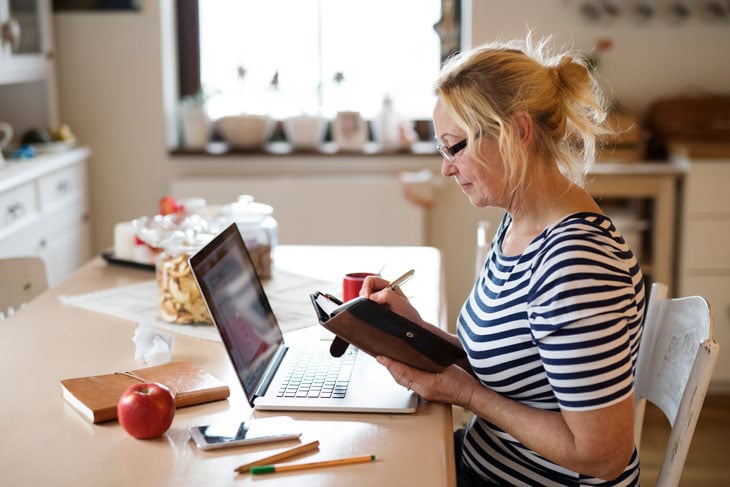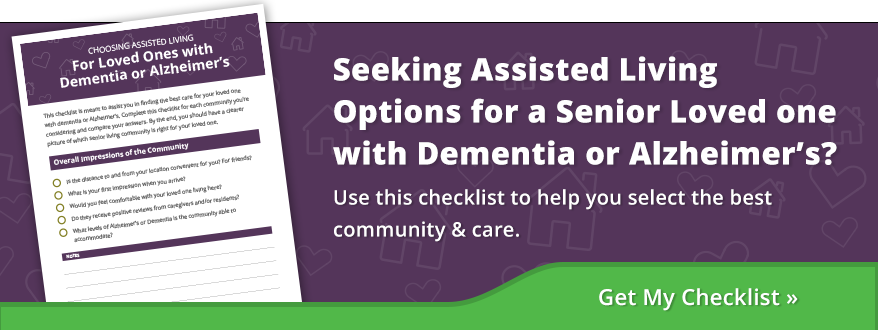
How Do I Minimize Mom’s Wandering?
Caregiver Support | Personal Care/Assisted Living
When my mom got diagnosed with dementia, I wasn’t exactly sure what to expect when her condition got worse. In the beginning things weren’t so bad, but over time it’s gotten a lot more serious. I knew she was really declining about a year ago, when she got lost for the first time.
What HappenedWe were out picking up some groceries when Mom said she was going to go a few aisles over to pick up an ingredient that we need for dinner. After a while of her not returning, I began looking around the store to see where she had gone. I started getting worried when I had gone past every aisle and I couldn’t find her anywhere.
I started frantically asking for help, until finally someone found her walking around in the parking lot outside of the store. This was an absolute wake up call for me. I knew how bad this situation could have been if she hadn’t been quickly found.
Having been through this experience, I'd like to write about how I've dealt with Mom's wandering to hopefully help others who care for someone with dementia.
Having A Daily Routine
Developing a daily routine has been a lifesaver in preventing Mom from wandering away. A daily routine helps to keep her time structured, so she gets less confused about what we’re doing. Straying from routine sort of “throws her off” and she has trouble adjusting to the change in plans. This can really upset her, which tends to make her confusion worse.
After some trial and error, I believe I’ve finally figured out a routine that works for the both of us. It was hard in the beginning to adjust to having such a regimented schedule, but it’s made things much easier since the adjustment. This helps her know what’s happening when and where she needs to be. It isn’t perfect - she still sometimes forgets the schedule - but it works much better than having no schedule at all.
Medical Alert Systems
Like so many other people, I had seen television ads for medical alert systems but never really thought that much about them. It wasn’t until I was talking with a friend about Mom’s wandering that I was convinced to look more into the medical alert systems that are available.
There are a variety of medical alert systems on the market, and they each offer different benefits. Some systems offer fall detection and automatic notification of authorities in the event of a fall. This is a major benefit for people who are prone to falls, as they may not be able to press the alert on their device on their own.
There are also systems that have GPS features for people with dementia, or those who have suffered strokes or other injuries. If the person gets lost, the GPS can be activated and will show their exact location, allowing them to be found.
To address my mom’s wandering specifically, I thought the choice among these options was clear. Mom’s medical alert bracelet has the GPS tracking feature specifically for people who are prone to wandering. Now I can feel safe in the fact that if she wanders off, she can easily be tracked down using her medical alert bracelet.
Avoiding Busy Places
Busy places like malls can be very overwhelming for people with dementia. All of the sensory stimulation can be distracting, and can cause a person with dementia to wander off towards a stimulating noise or activity.
Once Mom's dementia started getting worse, I made the decision to have us avoid busy places that would make it more likely for her to wander. Not only do crowds make her more confused, they also make it more difficult to find her if she gets lost.
This has been really positive for us, as it cut down on Mom's wandering. We still go out, but we limit outings to places that are not busy and relatively quiet.
Being Prepared for Emergencies
I’ve learned that being prepared in case Mom wanders has been helpful. It’s happened a few times since the day she got lost at the store, but each one has been easier to deal with than the last. Now, I make sure that Mom is always wearing a medical ID bracelet. This is helpful because it has her name and an indicator that she has dementia on it. This way if she’s distressed or lost and someone tries to help her, they can quickly see who she is and what’s wrong.
Since Mom has gotten sick, it’s been a struggle to ensure that she is taken care of and can’t get lost. Things are still difficult, but it’s much easier with the help of a solid routine and her medical alert system.
Being a full-time caregiver for a senior loved one with dementia or Alzheimer's can be a tough job. For more information on how to get the support you need, download our assisted living checklist!
About Annabelle Short
Annabelle is a primary caregiver for her mother with dementia, and professional seamstress. When not working, she’s spending time with her family or putting pen to paper for her own personal pursuits. Annabelle is passionate about dementia care and accessing the best caregiving resources.



